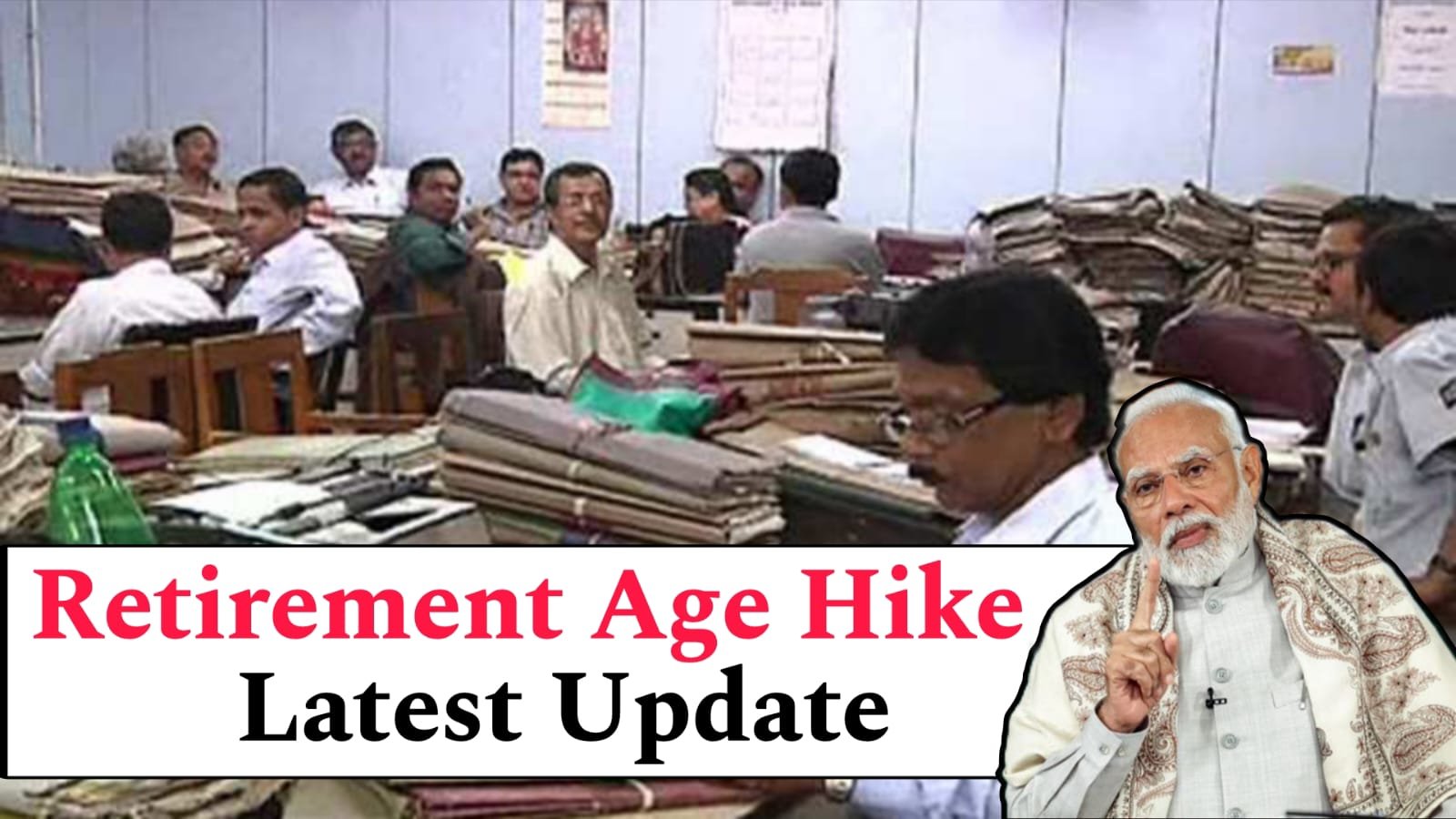Retirement Age Hike : In India, the topic of retirement age for government employees has always been a matter of public discourse. Traditionally, government employees are expected to retire at the age of 60. This age limit has long been considered a standard benchmark, with employees planning their careers and lives around it. However, a recent and significant verdict by the Delhi High Court has brought a historic change that could redefine this long-held standard. The court has issued an order that challenges the notion of a fixed retirement age and introduces a more dynamic and health-based approach. This decision has sparked new hope among government employees across the country, as it may pave the way for an extension of their service tenure beyond 60 years.
Retirement Age Hike : A Landmark Judgment : No More Mandatory Retirement at 60
The Delhi High Court’s verdict has brought immense relief and enthusiasm among government employees. The court ruled that retirement should not be based solely on age, but must also consider the physical and mental capacity of the individual. In simple terms, this means that turning 60 will no longer automatically disqualify a person from continuing in government service.
This judgment is not just a relief for employees nearing retirement, but also a progressive step toward rethinking retirement age across the nation. It opens up a broader debate: Is the age of 60 an appropriate retirement age in today’s time? Should individuals who are still capable and willing to work be asked to leave merely because they crossed a particular age threshold?
Why Is It Important to Reevaluate the Retirement Age?
Over the years, several questions have been raised about the appropriateness of the retirement age being capped at 60. With improvements in healthcare, lifestyle, and overall living standards, people are not only living longer but also staying physically and mentally fit well into their 70s. The average life expectancy in India has steadily increased, and many professionals continue to lead healthy and active lives beyond the age of 60.
This raises a valid argument—if a person is mentally sharp and physically fit, why should they be forced to retire at a predefined age? Shouldn’t their ability to work, contribute, and serve be given due importance? The Delhi High Court’s decision aligns with this thought process and encourages a more performance-based and humane approach to employment in the public sector.
Economic and Social Benefits of Extending Retirement Age
From an economic perspective, extending the retirement age could prove to be beneficial for both the government and the individual. Government employees possess years of experience, institutional knowledge, and decision-making skills that are often hard to replace. Instead of losing such valuable human resources, the system can benefit from their continued service.
Moreover, from a social standpoint, allowing people to work longer can significantly enhance their quality of life. Many individuals, after retirement, struggle with the sudden lifestyle change, loss of purpose, and financial uncertainty. Extending the retirement age or offering flexibility based on health and performance allows them to remain productive, financially stable, and socially engaged.
Improvements in Healthcare Have Transformed Aging
In the past few decades, India has witnessed remarkable progress in the field of healthcare. Better medical facilities, increased health awareness, access to nutritious food, and active lifestyles have all contributed to a longer and healthier life span for the population. As a result, many 60-year-olds today are much more energetic, agile, and capable than those in previous generations.
This improvement in health standards makes a strong case for rethinking age-based retirement policies. Instead of applying a blanket rule, there should be a system to evaluate an individual’s physical and mental capacity to continue working. This personalized approach will not only ensure fairness but will also help in retaining experienced and efficient professionals in the system.
Experience Is an Asset, Not a Liability
Another compelling argument in favor of extending the retirement age is the value of experience. Senior employees bring decades of wisdom, insight, and real-world knowledge to the table. They have faced diverse challenges, made critical decisions, and often act as mentors to younger staff. Losing such employees abruptly due to an age limit can lead to a vacuum in leadership and expertise.
Organizations thrive on a balance of youthful energy and seasoned experience. Extending the retirement age, or at least creating provisions for post-retirement roles or consultative positions, can ensure that the wealth of knowledge accumulated by senior employees continues to benefit the system.
The Court’s Clear Message: Prioritize Capability Over Age
In its verdict, the Delhi High Court clearly stated that retirement decisions should not be solely age-driven. Instead, the physical health, mental fitness, and work efficiency of the employee should be key criteria. This ruling effectively challenges the one-size-fits-all approach and supports a more inclusive and merit-based framework.
The court also emphasized the need to create evaluation mechanisms that can assess an employee’s readiness to continue work. Periodic health check-ups, performance reviews, and psychological assessments can be useful tools in determining whether an employee should be allowed to continue beyond 60.
What Could This Mean for the Future?
While the Delhi High Court’s decision is not yet a nationwide policy, it has the potential to spark a much-needed debate at the national level. The government may consider reviewing existing retirement policies and introducing reforms that reflect the current realities of health, longevity, and workforce needs.
If implemented across the board, such a policy could transform how India views aging, employment, and productivity. It could also help in reducing the economic burden on pension systems and allow older adults to lead financially independent and fulfilling lives.
Conclusion : A Progressive Step Toward Change
The Delhi High Court’s landmark ruling is a timely and progressive step that challenges outdated notions of retirement. By recognizing that age alone should not determine an employee’s worth, the court has opened the door to a more equitable, practical, and humane approach in public employment.
This decision is not just about government jobs—it reflects a changing mindset about aging, productivity, and dignity. As India moves forward as a modern, developing nation, such inclusive and forward-thinking policies will be crucial in shaping a society that values people for their capabilities, not just their birthdates.



